 At five am this morning an alarm went off at the National Training Center in Zouying, just north of Taiwan’s second biggest city, Kaohsiung. Nineteen-year-old Lin Man-Hsu, or Lisa in English, gets up this early every morning for two hours of training.
At five am this morning an alarm went off at the National Training Center in Zouying, just north of Taiwan’s second biggest city, Kaohsiung. Nineteen-year-old Lin Man-Hsu, or Lisa in English, gets up this early every morning for two hours of training.
 Lin Man-Hsu at the Hamad Aquatic Centre during the 15th Asian Games in Doha, 06 December 2006 Photo from: http://www.daylife.com/
Lin Man-Hsu at the Hamad Aquatic Centre during the 15th Asian Games in Doha, 06 December 2006 Photo from: http://www.daylife.com/ She is at the pool by 5.30 preparing to represent her country at the 2008 Beijing Olympic Games. If she wins gold in the 200m medley, there will be no national anthem and no national flag. She won’t have won a medal for Taiwan; instead she will have competed for a team called “Chinese Taipei”.
“I don’t like that”, says Lisa who has been swimming competitively since she was eight and swam at the Olympic Games in Athens and the recent World Championships in Melbourne. “I want to represent my country.”
Unfortunately, her country is Taiwan, Republic of China (ROC) which is not recognized by the United Nations (UN) and only maintains official diplomatic relations with a handful of countries.
Taiwan has been struggling for independence and it’s identity since 1949 when the ROC government retreated from the Communists who established the People’s Republic of China (PRC) on the mainland.
The ruling Ku Min Tang (KMT) moved to Taiwan and claimed sovereignty over the whole of China and vowed one day to return to claim its place as the rightful government.
That day never came. During the cold war years, both the PRC and ROC maintained a “One-China” policy, both claiming to be the legitimate government of Taiwan and Mainland China.
The international community supported the ROC until the period of “Détente” in 1971 when they lost their seat on the United Nations to the PRC.
Taiwan, ROC has been a political outcast ever since. Most countries refer to Taiwan, POC (Province of China).
The PRC moved to peacefully unify with Taiwan in 1979. Taiwan responded with “three no’s”: no contact, no negotiation, and no compromise.
The KMT ruled Taiwan as a dictatorship until the 1980’s when the country went through a period of economic and social liberalisation culminating in the lifting of martial law in 1987 and first presidential elections in 1996.
In 1990 the National Unification Council was established in Taiwan and issued guidelines for unification: China must democratize. The Democratic People’s Party (DPP), which was elected in 2000, abolished the council as part of their platform based on Taiwanese independence.
After the election earlier this year the KMT will return to power, promising closer relations with the mainland and greater economic prosperity. Today in Taipei you will still see large banners declaring “UN for Taiwan, Peace Forever”.
The election was held in conjunction with a referendum that asked if the people wanted to join the UN under the name “Taiwan”. It failed to gain a majority.
Regardless, the PRC insists that Taiwan’s efforts for independence will be in vain. September 2007 marked the fifteenth consecutive year the UN General Assembly refused to take up the matter of Taiwan’s membership.
China’s UN representative said that no sovereign state would allow one of its regions to apply for membership in the Assembly.
“We will never allow anyone to attempt to separate China,” he said and called for the Assembly to abide by the UN Charter, particularly regarding respect for the sovereignty of states and non-interference in their internal affairs.
Back in 2005, Chinese President Hu Jintao set out a four-point plan for unification: “One-China”, peaceful unification, hope for the Taiwanese people and never to accept Taiwan’s independence.
What does this mean for the identity of the 23 million Taiwanese people? Amy Liu from The Centre, a cross-cultural training organisation in Taipei explains: “There are several groups of people who came to Taiwan,” she said.
“We can divide them into two major groups. Eighty-five per cent of people were here before 1949. Those that came after 1949 are who we call new-comers” she said. “Both groups feel they are Taiwanese.”
“You need to look at how long they have been in Taiwan.” she said. “There are people who came after 1624, they have been here for 9 or 10 generations, those are the Taiwanese-Taiwanese.”
“If you look at the people who came in the 1900’s, and may have only been here for 3 or 4 generations, they may feel we can be a part of China.”
She said that all Taiwanese people, regardless of their political background would like to win a gold medal for Taiwan and “we are all pretty united in that”.
“We’re helpless; we can’t really do anything because ever since Taiwan lost its seat in the UN, the Taiwan name is not allowed to be seen.”
In 1979 the National Olympic Committee of Taiwan changed its name to National Olympic Committee of Chinese Taipei (NOCCT). It adopted the Chinese Taipei Olympic Flag which consists of the NOCCT emblem on white background which has been used officially since the 1984 Summer Olympics.
Chinese Taipei Olympic Flag
This symbol is not recognised by some international media organisations which used the ROC flag in 2004 Athens Olympics.
Both the PRC and ROC agreed to use the name “Chinese Taipei”. The translation of the term is ambiguous in English. It could mean “The Chinese State” Zhonggau or Zhonghau meaning “Chinese culture or ethnicity”. This ambiguity suits both sides.
Other organisations however, have started to use the name Chinese Taipei, including the Lions Club and the Miss Universe pageant, and even some international airports.
For the Beijing Olympics however, China has been changing Taiwan’s Olympic position from Chinese Taipei to Taipei, China.
Taiwan was originally invited to join the Olympic Torch Relay but China insisted that the name Taiwan, the ROC flag and anthem should not been seen during its visit. Taiwan declined the invitation.
“Taiwan’s status as an independent sovereign state would be degraded if the Olympic flame travels to Hong Kong via Taipei and exit Taipei through third party countries” said Mr. Tsai Chen-wei, chairman of the NOCCT in a letter to the Organizing Committee for the Beijing Olympic Games (BOCOG) in April 2007.
When Lisa was asked what she thought about not being able to show the ROC flag at the Olympics she said, “I feel bad, but it’s the politics”.
“I don’t think they [politics and sport] are related”, she said “but really they are.”
International Olympic Committee’s (IOC) “Fundamental Principles of Olympism” begin with: “Olympism seeks to create a way of life based on the joy of effort, the educational value of good example and respect for universal fundamental ethical principles.”
These “universal fundamental ethical principles” have often created conflict between members of the Olympic community.
Hitler refused to give Jesse Owens his medal at the 1936 Berlin Olympics. In Mexico in 1968 black US athletes gave the “Black Power” salute to highlight discrimination at home.
 Jesse Owens at the 1936 Berlin Games From: http://www.learningcommons.org
Jesse Owens at the 1936 Berlin Games From: http://www.learningcommons.org
Rule 51.3 of the Olympic Charter provides that “no kind of demonstration or political, religious or racial propaganda is permitted in any Olympic sites, venues or areas".
At a news conference in Beijing in April this year, Chinese foreign ministry spokesperson Jiang Yu, said: “I believe IOC officials support the Beijing Olympics and adherence to the Olympic charter of not bringing in any irrelevant political factors.”
This was in response to the IOC President Jacques Rogge who said, "A person's ability to express his or her opinion is a basic human right and as such does not need to have a specific clause in the Olympic Charter because its place is implicit".
"But we do ask that there is no propaganda nor demonstrations at Olympic Games venues for the very good and simple reason that we have 205 countries and territories represented, many of whom are in conflict, and the Games are not the place to take political nor religious stances.", said Mr. Rogge.
Although Lisa will not be able to make any political statements at the games, she will be representing a country that is beginning to have closer ties with the PRC economically and socially if not politically.
At least 30 000 Taiwanese companies have factories in China; Taiwanese firms have invested $2.14bn on the mainland, according to Chinese government figures.
China's annual trade with Taiwan grew 18% to $107.8bn last year and China imported $87bn worth of goods from Taiwan, up 16.6% on the year before.
“Everyone wants a part of China, even the Taiwanese” said Amy Liu from The Centre. “Taiwanese these days are really looking at how they will benefit more.”
Cultural ties are becoming stronger too. Since the change of government in Taiwan, the Honorary Chairman of the incoming KMT, Lien Chan visited President Hu in Beijing who pledged to continue working for the peace and well-being for people on both sides of the Taiwan Straight.
The first charter flights in 56 years also started in 2005 during Chinese holidays. Taiwanese people made more than four million visits to China last year while more than 200,000 mainland Chinese visited Taiwan according to a Chinese government spokesman.
However, China is a long way from meeting Taiwan’s original conditions for unification: democratization.
The similarities between Taiwan and Tibet’s struggles for independence are not lost on Amy Liu. “The five million people who voted for Green (DPP) want Taiwan to stay Taiwan”, she said. “They are the ones who identify more with Tibet, the feeling that we must have our identity, that we are not part of somebody else.”
She said that both Tibetans and Taiwanese are hungry to prove to the world that they are different from people in China. The majority of people in Taiwan however, voted for Blue (KMT) which shows people are more interested in what will benefit the economy more.
The recent events in Tibet have not supported the July 2001 statements from the Vice-President of the BOCOG Liu Jingmin, who said that allowing Beijing to host the Games would “help the development of human rights".

A police officer detains a pro-Tibet demonstrator along the route of the Olympic Torch in London, England, 06 April 2008. From: http://www.monstersandcritics.com/news/uk/
A statement that IOC President Rogge reminded the Chinese government at a press conference earlier this year saying, “We definitely ask China to respect this moral engagement.”
China has a long history of neglecting its obligations to international agreements. It signed the Vienna Declaration in 1993 which would ensure the Tibetan minority could exercise all human rights and fundamental freedoms without discrimination.
According to Amnesty International more than 1.25 million people have been displaced in Beijing to make way for urban developments and Olympic venues. This contravenes Article 11 of the UN’s International Covenant on Economic, Social, and Cultural Rights, which China ratified in 1966.
Chinese officials also promised “complete media freedom” in 2001, but since then we have seen the media excluded from Tibet.
The US based Committee to Protect Journalists has branded China “the world’s leading jailer of journalists” and Reporters Without Borders claims foreign news media based in China have been getting threatening email and phone messages in the run up to the games.
Media exclusion is not confined to the foreign media but even more so to its citizens. Cartoon police icons warn many of China’s 210 million internet users to stay away from “illegal” websites.
The “Great Firewall of China” is believed to be the most extensive, technologically sophisticated and broad-reaching system of internet filtering in the world according to Human Rights Watch with a 30 000-strong police force monitoring online activities.
Despite the breaches of China’s international obligations, Amnesty International still sees positive changes, such as a reform of the death penalty system and increased freedom for foreign journalists.
Human rights in China still have a long way to go to meet those in Taiwan and the world is paying attention. List of foreign leaders vowing to boycott the opening ceremony is growing.
It began with Prince Charles in January and then spread across Europe with Czech Republic President Klaus, Polish Prime Minister Tusk, Estonian President Ilves in March and then Czech Prime Minister Topolanek in April.
By the end of the month the list grew to include: British Prime Minister Brown, German Chancellor Merkel, French President Sarkozy, Canadian Prime Minister Harper and even UN Secretary-General Ban Ki-Moon.
United States President Bush and Australian Prime Minister Rudd plan to attend however, citing that the games should not be politicized.
Boycotting the Olympics for political reasons is not a new phenomenon. In 1980 the US missed the Moscow Games over the soviet invasion of Afghanistan. In retaliation Soviet countries stayed at home for the 1984 Los Angeles Olympics.
Taiwan may have more reason than anyone else to Boycott the Games but Amy Liu doubts that this would ever happen. “If the Green (DPP) party were still in office, it would be more likely”, she said. “Taiwanese just want to be able to participate in the Olympics.”
“We would be very proud to have the opportunity to go to the Olympics. It’s a world event and we want people to understand that we are worldly”, she said. “If we can enter, it’s still a chance for asserting that we are a separate place from China.”
Boycotting the Beijing Olympics has not been confined to politicians. In February 2008, US director Spielberg pulled out of his role as advisor to the opening ceremony over the Chinese government's involvement in the war in Darfur.
Leading German athlete Yvonne Bönisch, winner of a gold medal in judo in the 2004 Olympics, also has said she wouldn’t be attending the opening ceremony.
When Lisa was asked if she thought these boycotts were a good idea she said, “I don’t know, I think athletes have the right to compete.”
When asked about how she felt about the Olympic Torch not coming to Taiwan she said, “I thought it was... I don’t watch TV”.
The torch relay, which was introduced at the 1936 Berlin Olympics to showcase the achievements of the Third Reich, is proving problematic for the BOCOG.
 From: http://www.currybet.net/
From: http://www.currybet.net/
The BOCOG planned it to be the longest torch relay ever (including Tibet and Taiwan). It was billed as a "journey of harmony"; however the flame has met protests from Human Rights groups around the world.
Whether the protests or the games themselves will have any lasting impact in China is yet to be seen. Amy Liu is pessimistic. “Personally I think it’s a surface kind of thing”, she said.
“China is going to present its best at the Olympics in 2008 as any country would try and look good, but will that continue, will people be more liberal, will people be up to that international level that they are trying to create? I think it takes time.”
“The Chinese who are actually connected to the Olympics may benefit but it’s probably not influencing the majority of the population’, she said.
The Olympics may not bring the promised benefits to the Chinese people nor mend bridges across the Taiwan Straight but the people of Taiwan seem happy to compete under any name.
“If we get a gold medal for Chinese Taipei we will know that it was someone from Taiwan”, said Amy Liu.
 Lin Man-Hsu at the Hamad Aquatic Centre during the 15th Asian Games in Doha, 06 December 2006 Photo from: http://www.daylife.com/
Lin Man-Hsu at the Hamad Aquatic Centre during the 15th Asian Games in Doha, 06 December 2006 Photo from: http://www.daylife.com/
Meanwhile, Lisa still gets up at 5 am. When asked if she thought the Olympics could make the world a better place she replied, “I think sports are only games, it can’t change anything.”
“Everyone just watches the games for entertainment.”
“The most important thing is that I have to make my best time at any meet. The Olympics are just another meet.”
 At five am this morning an alarm went off at the National Training Center in Zouying, just north of Taiwan’s second biggest city, Kaohsiung. Nineteen-year-old Lin Man-Hsu, or Lisa in English, gets up this early every morning for two hours of training.
At five am this morning an alarm went off at the National Training Center in Zouying, just north of Taiwan’s second biggest city, Kaohsiung. Nineteen-year-old Lin Man-Hsu, or Lisa in English, gets up this early every morning for two hours of training.

 Jesse Owens at the 1936 Berlin Games From: http://www.learningcommons.org
Jesse Owens at the 1936 Berlin Games From: http://www.learningcommons.org From: http://www.currybet.net/
From: http://www.currybet.net/ Lin Man-Hsu at the Hamad Aquatic Centre during the 15th Asian Games in Doha, 06 December 2006 Photo from: http://www.daylife.com/
Lin Man-Hsu at the Hamad Aquatic Centre during the 15th Asian Games in Doha, 06 December 2006 Photo from: http://www.daylife.com/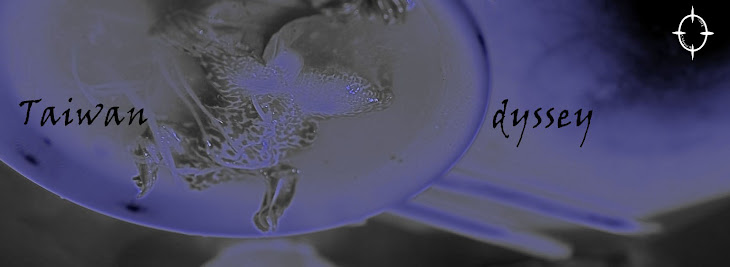










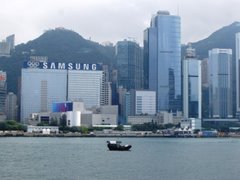
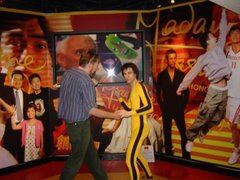
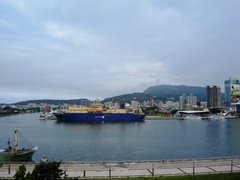
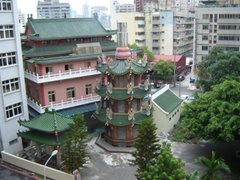
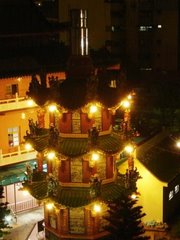
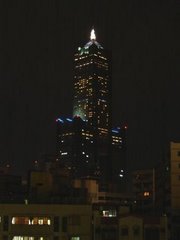
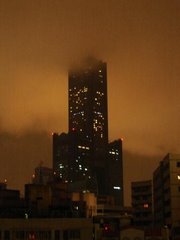
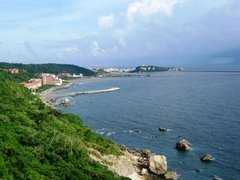
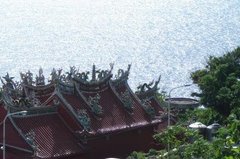

No comments:
Post a Comment